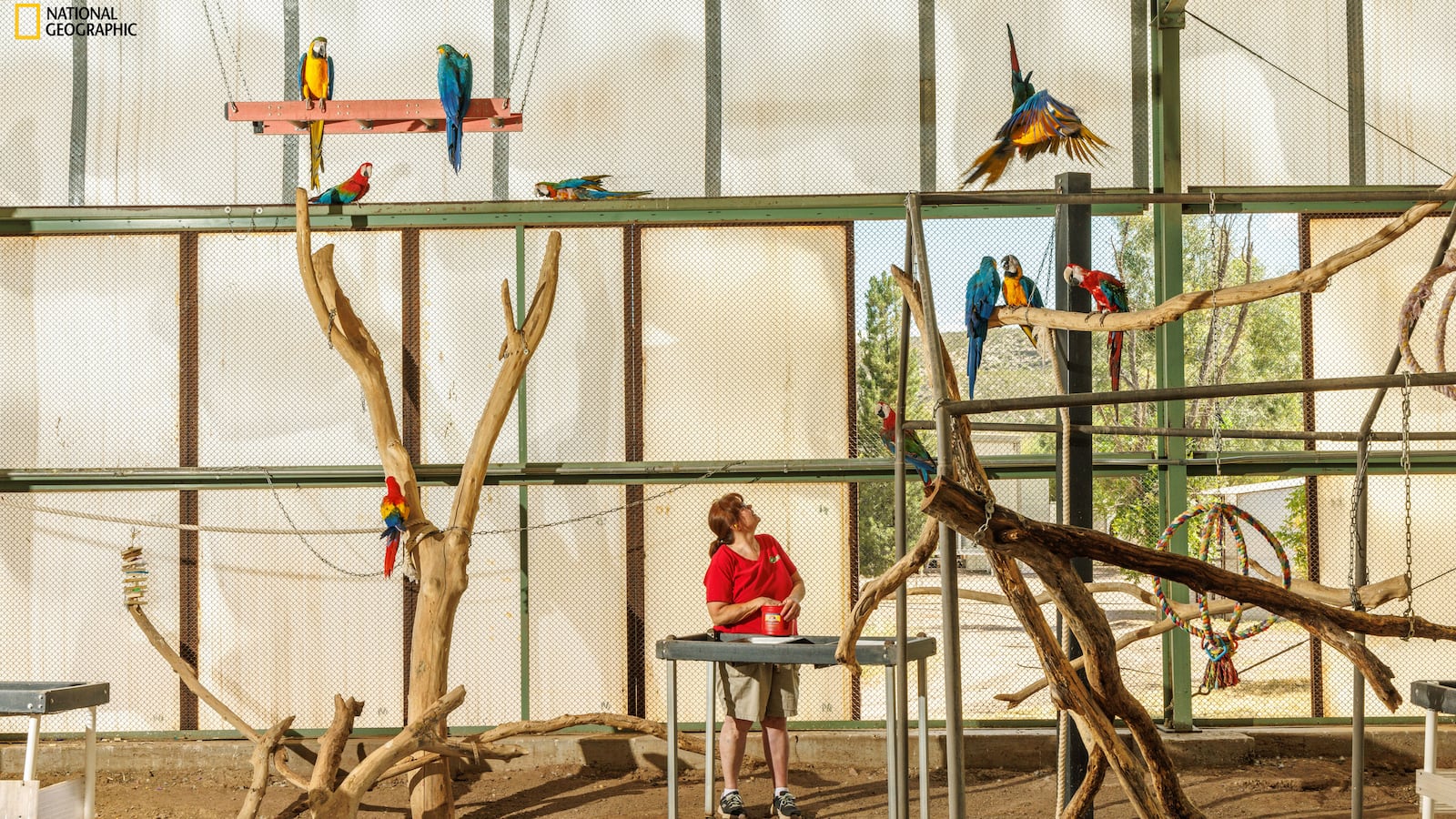The world is an incredible place, and as usual, National Geographic has the photos to prove it.
The magazine’s editors have chosen the best images from the past year to showcase in their annual photo issue, highlighting the top moments captured by their photographers.
From baby penguins to a fiery volcano, a rare tiger to a biofuel that could save the planet, here are five photos that offer a timely reminder to step away from the political chaos for a minute and contemplate the wonders of the universe.

Fuego Volcano in Guatemala has been erupting continually since 2002. This image shows hikers who have made the one-day trek to the top of its dormant twin, Acatenango, to see one of Fuego’s breathtaking eruptions, which can take place multiple times a day.

A young emperor penguin jumps off a 50-foot cliff to take its first swim. Penguins typically breed on low-lying sea ice, but climate change has pushed some colonies to higher, more permanent shelves. As the image shows, that hasn’t stopped their intrepid young from taking their first, daring swims.

A rare black tiger with tell-tale merged stripes patrols the Similipal Tiger Reserve in India. Black tigers are one of three color variants found among Bengal tigers, with their black patch caused by a genetic mutation. The photo was taken with a remote camera trap triggered by the tiger’s motion.

Macaw parrots are a popular but undesirable pet. They can live 40 to 60 years but panic in captivity, leaving many owners to abandon them to wildlife refuges like the Oasis Sanctuary in Arizona, pictured here. In the photo, executive director Janet Trumbule tries to coax them with walnuts.

This photo might not be the most visually stunning of the bunch, but its implications are huge. It shows a solar synthetic fluid from the Swiss company Synhelion made using sunlight, water, and carbon dioxide. The new fuel could someday be used to power trucks, ships, and planes—all without any retrofitting.
Maybe there’s hope for humankind after all.
For more on this story—and to go behind the scenes with the photographers—visit NatGeo.com/Photos.





